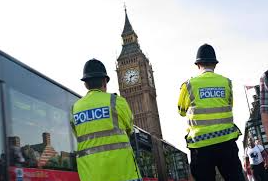
Funding aims to reduce crime and boost public safety with additional patrol hours across England and Wales.
The UK government has announced a £66 million funding initiative to help police forces across England and Wales increase their patrol presence in areas suffering from high levels of anti-social behaviour. The funding will enable each of the 43 police forces to carry out additional uniformed patrols, providing up to 20,000 hours per year in key “hotspot” areas affected by crime and disorder.
Each police force will receive a minimum of £1 million, with larger allocations going to high-priority areas. The Metropolitan Police will receive over £8 million, while West Midlands will get at least £3 million. Other areas like Greater Manchester, Merseyside, and West Yorkshire are set to receive over £2 million each. The government aims to tackle violence and improve public confidence in local policing.
This initiative follows successful trials in areas such as Essex and Lancashire, where more than 80,000 patrol hours led to hundreds of arrests and a noticeable decrease in anti-social behaviour. Officials are also targeting the closure of an additional 1,000 county lines drug networks by August, further supporting the effort to reduce crime.
Prime Minister Rishi Sunak stressed the importance of combating anti-social behaviour, stating that it “destroys communities and takes away the public’s right to feel safe.” He expressed confidence in the plan’s effectiveness, declaring that the government will continue its investment in police forces to ensure everyone feels safe in their communities.
Home Secretary James Cleverly added that the increased police presence would be crucial for maintaining public confidence. He highlighted that the strategy had proven successful and would further ensure that people not only feel safe but are safe in their local areas.
The funding announcement is part of the government’s broader action plan against anti-social behaviour, launched in March of the previous year, which focuses on a zero-tolerance approach to drug-related offences, loitering, and fly-tipping.
Police leaders have welcomed the funding, with Deputy Chief Constable Andy Prophet of the National Police Chiefs’ Council noting that residents often request a more visible police presence. This funding will help forces focus their resources on areas most in need, targeting criminal activity where it is most concentrated.
Steve Turner from the Association of Police and Crime Commissioners also praised the initiative, noting the success of pilot schemes which have demonstrated the effectiveness of concentrating efforts in high-priority areas. He emphasised that tackling anti-social behaviour is a key public priority, with local communities eager to see action taken.










